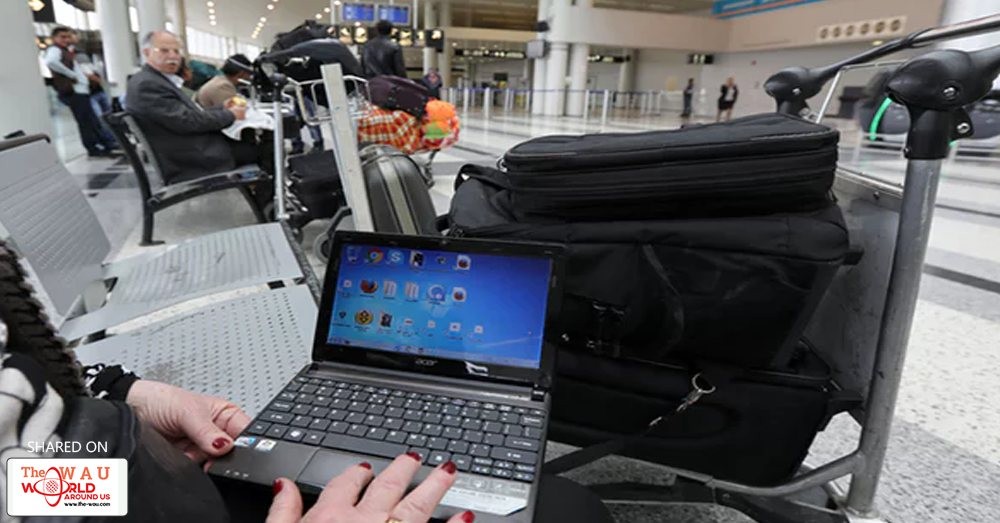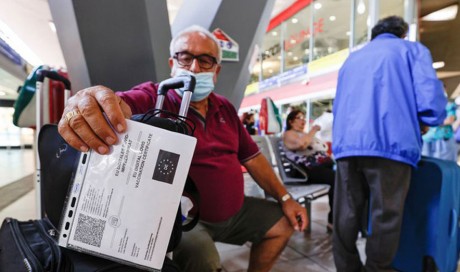A proposed Trump administration ban on passengers from Europe taking laptops and tablets into cabins on flights to America appears to have been dropped after a meeting between EU and US officials.
US officials had previously said they were looking into extending to Europe a ban on electronic devices on flights originating from 10 airports in eight countries including the UAE, Saudi Arabia, Qatar and Turkey, over alleged concerns that bombs could be hidden in the devices.
But it is understood that during a four-hour meeting between EU and US officials on Wednesday, there was no talk of applying the so-called “laptop ban” to flights from Europe. The American delegation, led by the deputy secretary of homeland security, Elaine Duke, instead promised to keep Brussels informed if any alternative measures were to be put in place.
While the EU delegation were not given a guarantee that a laptop ban would not be imposed, there is greater confidence in Brussels that it is unlikely to happen in the near future.
There remain concerns with the aviation industry that the ban could still reemerge in the coming weeks. A spokesman for Airlines for Europe, the representative body for 22 major carriers, said: “We just know that there will further talks next week.”
One senior source said the industry would be “surprised” if the Trump administration had dropped its plans. “If the ban was no going ahead it is a great result and a lot of credit should go to the European side for negotiating, but at the moment it is not so certain,” the source said.
“It had appeared so clear that the ban was going to be imposed that it would be a surprise for it to be dropped over night after one meeting. We shall have to wait and see.
“If the ban comes in then security may or may not be improved, but because of the risk of batteries being put in the hold, safety will not be.”
A joint EU-US statement issued after the meeting said: “At the meeting, both sides exchanged information on the serious evolving threats to aviation security and approaches to confronting such threats.
“Participants provided insight into existing aviation security standards and detection capabilities as well as recent security enhancements on both sides of the Atlantic related to large electronic devices placed in checked baggage.”
The “high level” meeting had been requested by EU officials because of concerns that information about a possible security threat had not been shared with Brussels, and that major travel disruption would ensue should America act unilaterally.
Pushed as to whether the laptop ban had been dropped, the European commission’s chief spokesman, Margaritis Schinas, declined to offer any cast-iron assurances during his daily press conference in Brussels, saying: “No ban on electronic devices was announced. Neither were any other measures decided during this meeting.”
The airline industry had feared the widening of the laptop ban would mean longer lines at security, significant delays and confusion at boarding gates during the busy summer period.
Last year, 30 million people flew to the US from Europe. According to the airports association ACI Europe, there are 3,257 flights a week scheduled to fly to the US from airports in 28 European Union countries this summer.
The US restrictions, introduced in March, apply to devices “larger than a smartphone” being brought into cabins on flights from Turkey, Morocco, Jordan, Egypt, the United Arab Emirates, Qatar, Saudi Arabia and Kuwait. The UK issued a similar ban on flights from six countries.
The EU authorities were assured by their US colleagues that Wednesday’s meeting signalled the start of an era of better communication under Donald Trump. A second meeting will be held between senior EU and US officials in Washington next week, officials said.
“The United States and the European Union reaffirmed their commitment to continue working closely together on aviation security generally, including meeting next week in Washington DC to further assess shared risks and solutions for protecting airline passengers, whilst ensuring the smooth functioning of global air travel,” a statement said.
Share This Post















